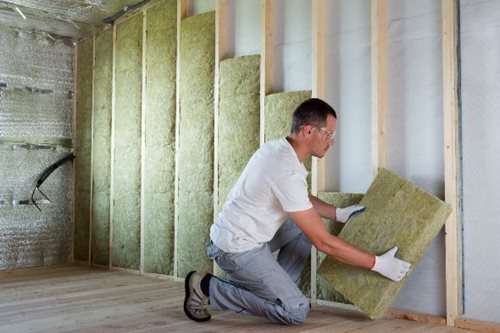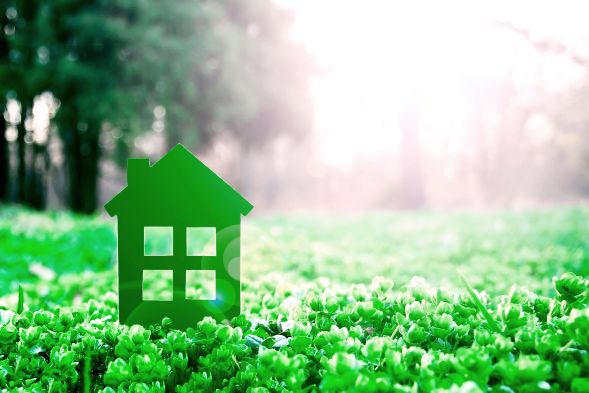How to Make your Home more Energy Efficient
House
4
min read
08 Nov 2019

We’re all trying to live a bit more sustainably these days with the worsening of the climate crisis. But, it’s good to know you can also improve your quality of life while making the extra effort to live ‘greener’. Nowhere is this more achievable than in your own home! So we want to show you how to make your home more energy efficient. Not only will you be cosier and warmer in the winter months, but you’ll also save money on heating and utility bills. In fact, we’ve written a whole blog on the savings to be made.
Another advantage is that you will improve your home’s Building Energy Rating Certificate (BER). This is important when it comes to selling your home – or indeed buying a new one. The Energy Performance Certificate (EPC) is a similar measure which is used for homes in Northern Ireland (NI).
So read on for some practical and effective ways to make your home more energy efficient. We’ve also got a handy section with information on the grants and aids available, for some of those bigger energy efficiency undertakings.
Double glazing
 Newer houses and apartments will have double-glazed windows as standard. If you’re in an older building, you’ll probably need to retrofit your windows with double-glazing to make your home more energy efficient. Double-glazed homes are warmer in winter and cooler in summer. And they also cost significantly less to heat.
Newer houses and apartments will have double-glazed windows as standard. If you’re in an older building, you’ll probably need to retrofit your windows with double-glazing to make your home more energy efficient. Double-glazed homes are warmer in winter and cooler in summer. And they also cost significantly less to heat.
If you do have double-glazing, check whether energy saving or low e-glass has been used. If not, you might want to consider a retrofit also. This type of glass can be as much as 70% more energy efficient than standard double-glazing.
Draught busting
Draught proofing your doors and windows is one of the first and easiest steps towards making your home more energy efficient. We all know you need a certain amount of ventilation for a good air-flow and to keep mould at bay. But that doesn’t mean you should be able to blow-dry your hair with the draught blowing under your bedroom window!
Check the weather stripping on all your doors and windows, as well as electrical outlets and skirting boards. Seal up any gaps with a foam insulating tape or a silicone sealant. For both interior and exterior doors and windows, fit draught excluders. You’ll have your home feeling that extra bit cosy in no time and at no huge cost.
Insulation
 One the best, most fail-safe ways to make your home more energy efficient is to improve the insulation. If you’re living in an older build, then chances are your home may not have been fully insulated. You can quickly and cost-effectively lay down loft insulation in your attic. This should cost you approx. €600 in Republic of Ireland (ROI) and £520 in NI for an average three bed semi-detached.
One the best, most fail-safe ways to make your home more energy efficient is to improve the insulation. If you’re living in an older build, then chances are your home may not have been fully insulated. You can quickly and cost-effectively lay down loft insulation in your attic. This should cost you approx. €600 in Republic of Ireland (ROI) and £520 in NI for an average three bed semi-detached.
However, you may also need to insulate your walls, which is a more complex undertaking. And more expensive. You’ll probably need a professional for this one. On average, insulating a cavity wall ranges in cost from €600 to €1,000 in ROI. There is Sustainable Energy Authority of Ireland (SEAI) relief of up to €400 available. In Northern NI costs can range from £531 to £886.
Solid walls are more expensive again. They can cost between €7,000 and €25,000 in ROI. In NI, you are looking at between £6,200 and £22,167. Again, SEAI relief of up to €2,400 for internal walls and €4,500 for external walls are available in ROI. Contact the Bryson Energy Advice Line in NI for information on the relief available for insulation.
Boiler serving or replacement
To ensure you boiler is safe, and as energy efficient as possible, you should be booking regular services.
If your boiler is older, you will probably need to go a step further than services and install a newer model. This will be a huge step towards making your home more energy efficient. While this can be expensive up front, you’ll be delighted with the long-term savings. You could save as much as 12% on your annual bills.
If you are replacing (or just booking a service) it’s important that you contract a Registered Gas Installer (RGI) in ROI and a Gas Safe installer in NI. They are the only gas installers certified to safely replace your boiler. You can expect to pay between €2,000 to €3,000 approx. for the boiler supply and fit - depending on where you live in ROI. In NI, you can check out this handy boiler calculator. This will help you to figure out how much a replacement and installation will cost, depending on your home, number of rooms and radiators etc.
Solar Panels
Yep you heard us right. Solar panels actually work in grey ol’ sun-deprived Ireland! In all seriousness though, if you want to improve your home’s energy rating, reduce your annual electricity bill by up to €300 (£259) and do your bit for the environment, solar panels are the way to go. The SEAI offers decent grants for photovoltaic solar panels and battery energy storage systems in ROI. Contact the Bryson Energy Advice Line in NI to find out which type of panels are suitable for your home, and the grants available.
Grants and Aids
 The SEAI provides grants and relief in ROI if you’re undertaking retrofits etc. to make your home more energy-efficient. Check out their page on home energy grants for the full list available.
The SEAI provides grants and relief in ROI if you’re undertaking retrofits etc. to make your home more energy-efficient. Check out their page on home energy grants for the full list available.
There are also free energy efficiency improvements available for those in receipt of social welfare, provided they meet all the qualifying criteria. The Warmth and Wellbeing Scheme is available for vulnerable people living with chronic respiratory problems.
In NI, contact the Bryson Energy Advice Line or check out their website for information on the grants available to you.
Of course, your local credit union also offers home improvement or green home loans at an affordable rate. You can check out or blog on the top reasons to consider a credit union loan for your home improvements.
Or, contact your local credit union for more information.